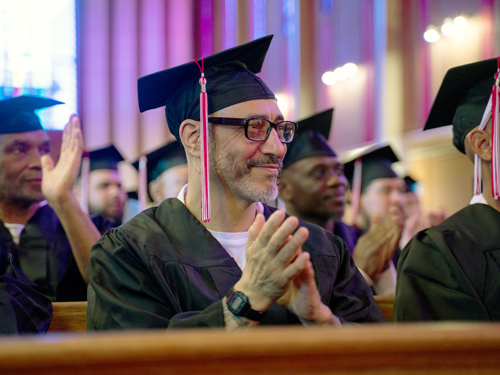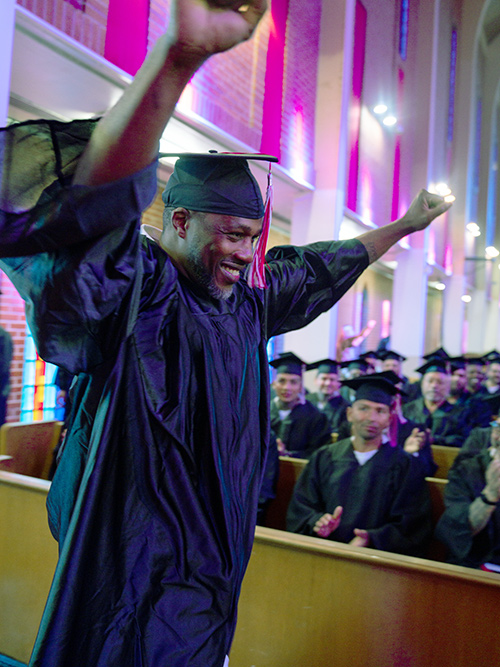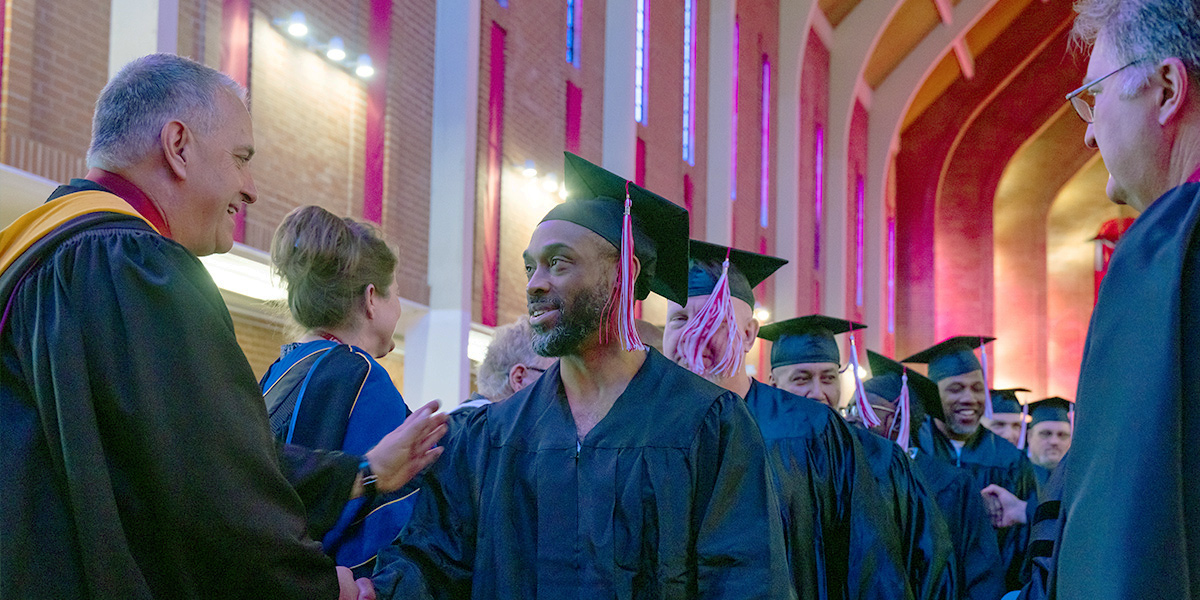 For the first time since 2019, Lee College Huntsville Center (LCHC) held commencement ceremonies for graduating incarcerated students. The celebrations took place at seven of LCHC's nine prison units with 463 graduates in attendance — including alumni from 2020-2022 who could not participate in ceremonies due to the pandemic.
For the first time since 2019, Lee College Huntsville Center (LCHC) held commencement ceremonies for graduating incarcerated students. The celebrations took place at seven of LCHC's nine prison units with 463 graduates in attendance — including alumni from 2020-2022 who could not participate in ceremonies due to the pandemic.
One by one, each graduate proudly walked across the room — to the sounds of loved ones cheering in the background as they received their associate degrees in HVAC, automotive mechanics, business management, cabinet making, culinary arts, horticulture, microcomputer applications and welding.
"Commencement is the icing on the cake — not only for our graduates, but also for the faculty and staff. You get to see years of hard work and sacrifices come to fruition," said Donna Zuniga, LCHC associate vice president. "Faculty have been their supporters, and for them to finally see it all culminate in a graduation ceremony and to have their families witness this moment is truly dynamic."
 During the ceremony at the John M. Wynne Unit in Huntsville, Lee College President Dr. Lynda Villanueva congratulated the nearly 80 graduates for their tremendous accomplishments. She emphasized that nothing could stop them from achieving their dreams of a brighter future.
During the ceremony at the John M. Wynne Unit in Huntsville, Lee College President Dr. Lynda Villanueva congratulated the nearly 80 graduates for their tremendous accomplishments. She emphasized that nothing could stop them from achieving their dreams of a brighter future.
"When I look at each of you and consider what it takes to have reached where you are today, I wonder what challenges you have overcome and will continue to face as you move forward," Villanueva shared. "But I also wonder how each of you will use these challenges and the education you've received to make a positive difference in the lives of those around you and in our world today."
Obtaining a college degree while behind bars has been proven to dramatically increase an individual's ability to successfully re-enter society. According to a recent study by the Department of Justice, a post-secondary education program while incarcerated decreases the likelihood of recidivism or return to prison by 48 percent. In Texas, that number is 20 percent and 6 percent for the Huntsville Center.
LCHC is all about second chances. Former students have gone on to become successful entrepreneurs, community advocates, creators of at-risk youth programs, and some have even returned to Lee College as adjunct instructors.
Established in 1966 with the Texas Department of Criminal Justice (TDCJ), the Huntsville Center has nearly 1,200 students. It's the largest prison education program in Texas and one of the largest in the nation.

